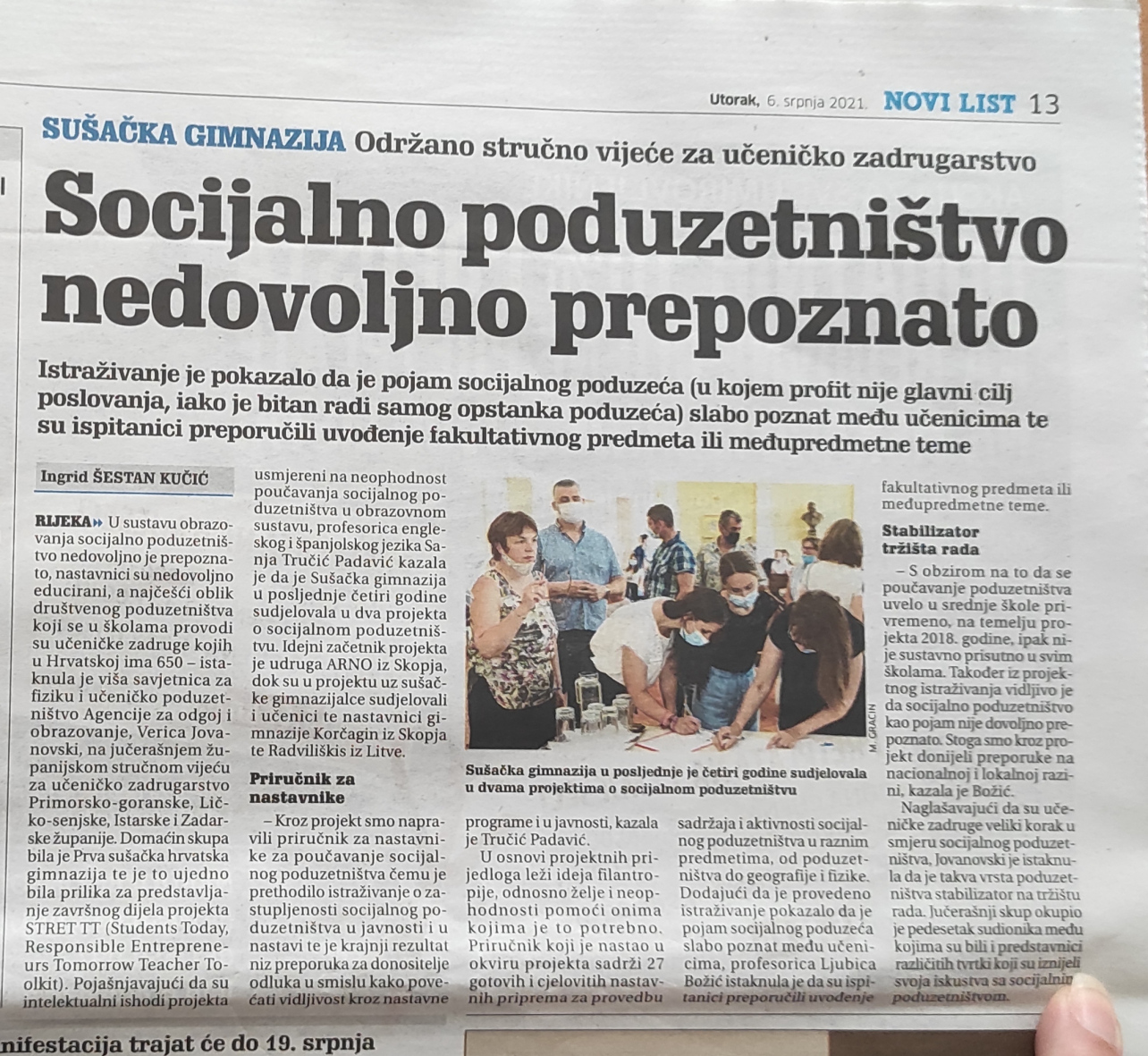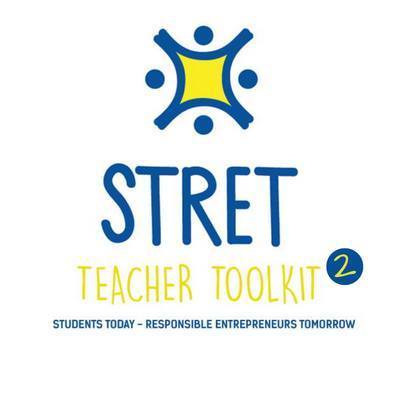Students Today – Responsible Entrepreneurs Tomorrow.
Teacher's Toolkit

Multiplier event on 26th February in Radviliškis Lizdeika gymnasium
26 February 2025 a dissemination conference on the launch of three intellectual products was organised by the Lizdeika Gymnasium. Simona Frausing, Head of the Business Development Unit of the Innovation Agency, Simona Augutė, Coordinator of the Seniors' Organisation Šiauliai of the National Social Integration Institute, Rasa Valaitytė, Head of the Junior Achievement Programmes of Lithuania, took part in the conference and gave presentations. The event was attended not only by teachers from Radviliškis district schools, but also from schools in other Lithuanian cities.
The second part of the conference was the practical sessions. Teachers from Lizdeika Gymnasium, who took part in the development of the products and the application of the methodological materials, shared their experience with colleagues from other schools in their teaching subjects. Participants learnt about social entrepreneurship education in Lithuanian language and literature, mathematics, natural sciences, social sciences and non-formal education activities.
Erasmus+ funding contributes significantly to educational strategies and innovations that influence quality education activities.
AGENDA
Social entrepreneurship is learned in school. From digital skills to financial education
Saturday, 8 February 2025, Romania
Agenda
MULTIPLIER EVENT:
STUDENTS TODAY RESPONSIBLE ENTREPRENEURS TOMORROW
PROMOTION OF TEACHER TOOLKIT 2 (STRET.TT.2)
WEB SITE AND TEACHERS’ RESOURCES
7 February 2025
Location: School Rade Jovceski Korcagin – Skopje, North Macedonia
AGENDA
MULTIPLIER REPORT – RJK
FINAL PRESENTATION
MULTIPLIER EVENT PHOTOS
It is often said that schools only prepare children for final exams, neglecting the development of personality and general skills. The world is changing fast - so fast that the pupils who are at school today will enter the labour market in a very different world of tomorrow. The ability to generate new ideas, to find different solutions to problems, and to see ways of using them into practice - skills that are integral to modern society. They fit under the concepts of creativity and entrepreneurship. Increasingly, there is talk that these qualities should start to be developed at school. The STRET.TT.2 project and the cooperation with the NGOs, Organization for social innovation ARNO from the North Macedonian and Scola de Valori, the Romanian Scola de Valori, have given schools in Italy, Lithuania and North Macedonia the opportunity to broaden the content of the curriculum and to develop the competences needed for a 21st century global citizen. Entrepreneurship is a set of personal qualities, critical thinking, creative thinking, the courage to act, to take responsibility, to work responsibly and not to be afraid to take risks.
Prezi presentation (Croatia):
https://prezi.com/view/hFC8FVlDlSkEAUFy0SyY/
ПОВИК ЗА УЧЕНИЦИ И ПРОФЕСОРИ ОД ГИМНАЗИИ
Call for teachers and students from high schools
Erasmus+
STRET. Toolkit.
Skopje, 10th July, Saturday
(the third coordinators’ meeting)
10.00–11.30
Project activities and their implementation. Reflexion
11.30–12.30
Review of IOs
12.30–13.30
Lunch
13.30–14.30
Finalization of multiplier events. Reflexion
14.30–15.30
Evaluation and final reports
15.30–16.00
Overview of the Project website
16.00 –16.30
Administrative issues (reporting documents from each country)
16.30–17.00
Cooperation and communication for the future, the continuity of the project
Birželio 28 d. vyko antroji sklaidos konferencija Radviliškio Lizdeikos gimnazijoje. Lizdeikos mokytojai dalinosi su gimnazijos ir kitų rajono mokyklų mokytojais žiniomis apie socialinio verslumo ugdymą ir integraciją į mokomuosius dalykus.
Radviliškio Lizdeikos gimnazija, turinti gana didelę patirtį tarptautinėje projektinėje veikloje, balandžio 14 dieną pakvietė Lietuvos pedagogus į nuotolinę praktinę konferenciją „Šiandieninis mokinys – atsakingas verslininkas rytoj“.
Evo nas u Novom listu:
Multiplier event in Rijeka (Croatia):
the second coordinator’s meeting

